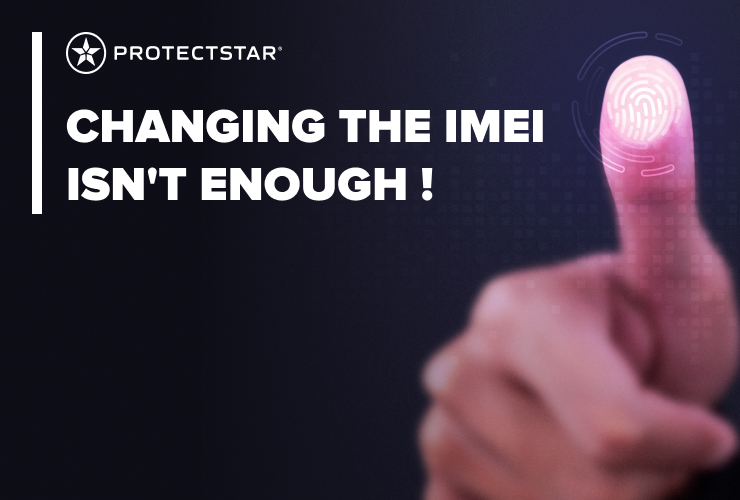Why Changing the IMEI Alone Isn't Enough to Hide Your Device Identity

The International Mobile Equipment Identity (IMEI) is a unique serial number that every mobile device has, and it's used by mobile networks to identify your device. You may have heard that changing the IMEI can help anonymize your device, but that's not entirely true—and it might even cause more problems than it solves.
What Is the IMEI, and Why Isn't Changing It Enough?
The IMEI is just one of many hardware identifiers that mobile networks have access to. If you only change the IMEI, you are simply masking one of the most commonly used identifiers of your device. However, mobile networks can still recognize your device through many other identifiers.
Networks use more than just the IMEI to gather information about your device. These details can include your device's capabilities, software configurations, and specific technical quirks. If your fake IMEI doesn't match the other identifiable characteristics of your device, this can raise suspicion and draw unwanted attention.
Mobile carriers can easily detect devices with a manipulated IMEI because they can spot when the IMEI changes while other device identifiers remain the same. This could also raise red flags and make you more noticeable.
IMEI Randomization – Not a Good Solution
It might sound appealing to randomly change your device's IMEI frequently to protect your privacy. However, in reality, this practice could backfire. A device that constantly changes its IMEI is unusual and could attract suspicion. Instead of protecting you from being tracked, it could make you stand out.
Instead of focusing on the IMEI, there are better ways to enhance your privacy—especially with modern Wi-Fi technology and MAC randomization. Devices like Google Pixel and iPhones have made significant strides in recent years. These devices generate a random MAC address for each Wi-Fi connection, making it much harder to track your device through Wi-Fi.
However, there are limits. The MAC address remains the same while connected to a network and only changes when the connection is reset. For instance, when using a Wi-Fi hotspot or access point (AP), the MAC address remains constant during use. A hotspot always has some form of persistent identification.
Bluetooth LE Offers Better Privacy Than Wi-Fi
Interestingly, Bluetooth Low Energy (BLE) now provides better privacy features than Wi-Fi. BLE uses MAC rotation, which prevents a device from being tracked over extended periods. This feature is lacking in Wi-Fi protocols, meaning that a Wi-Fi hotspot or access point doesn't offer the same level of anonymity as Bluetooth.
The Right Way to Improve Your Privacy
If you truly want to maximize your privacy on a mobile network, simply changing your IMEI or MAC address won't cut it. The best approach is to use a fresh device and a new SIM card. A device running a privacy-focused operating system like GrapheneOS is an excellent choice. GrapheneOS not only implements MAC randomization for Wi-Fi connections but also adds additional protections through random DHCP parameters.
To stay as anonymous as possible, it's advisable to avoid mobile networks and rely more on Wi-Fi connections, with airplane mode enabled. This way, your MAC address stays randomized, and you avoid being tracked through mobile network identifiers.
Conclusion
Changing the IMEI is not a reliable way to anonymize your device. In fact, it could raise suspicion and attract unwanted attention. Those who seek real privacy on mobile networks should rely on modern privacy technologies like MAC randomization and privacy-focused devices.
Lastly, we at Protectstar Inc. can confirm that our Android apps, including Antivirus AI, iShredder Android, and many others, are fully functional on GrapheneOS. This ensures that you don't have to compromise on our trusted security solutions when using a privacy-centric operating system.
Learn more
GrapheneOS: https://grapheneos.org
Antivirus AI: https://www.protectstar.com/en/products/antivirus-ai
iShredder Android: https://www.protectstar.com/en/products/ishredder